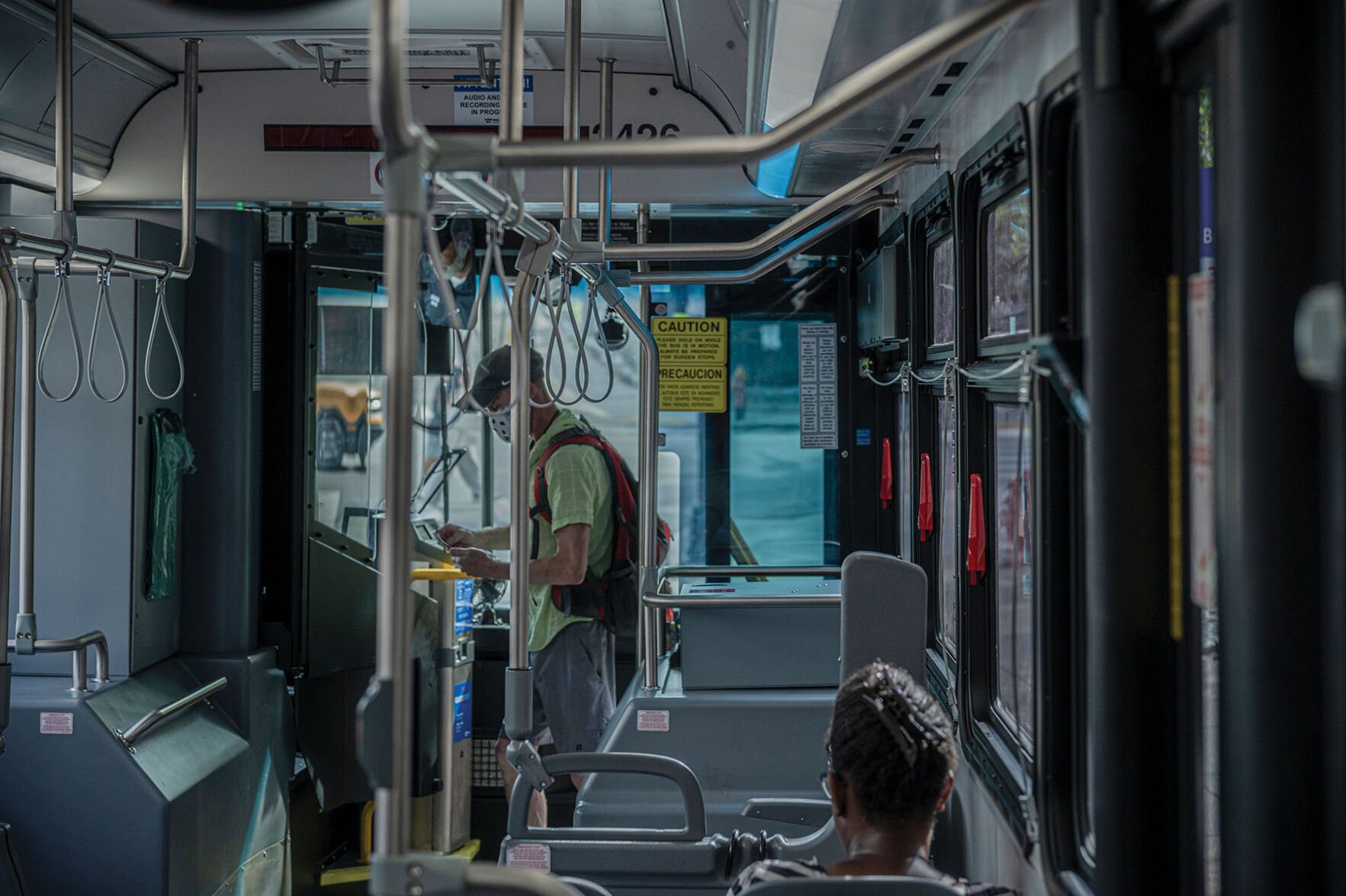Orange cones and construction barriers mark off the last few unfinished areas of WeGo’s new North Nashville transit hub on Clarksville Pike. Buses slowly creep through the site’s five bays, and in an airy, air-conditioned atrium, flat-screen TVs show ETAs and ETDs for routes toward Edgehill and the airport.
Officially the Dr. Ernest “Rip” Patton Jr. North Nashville Transit Center — named for the Nashville-born civil rights activist, musician and freedom rider who died at 81 in 2021 — WeGo’s new addition formally opens in late August. The project broke ground in November 2022, and buses have been running there since early summer, a few months behind the site’s projected spring completion date.
Public transit is a utility. Riders who spoke with the Scene want an efficient and predictable network with sensible routes and minimal transfers. Structurally, a better bus network starts with eliminating the entire system’s dependence on Fifth Avenue’s WeGo Central; practically, riders want buses that arrive and leave on time.
For regular riders, the new transfer station solves a geometry problem. Major lines run to WeGo Central, a hitch that requires regular transfers at the downtown hub and devastating traffic slowdowns. Bus hubs outside the core, like the Patton Center, can help bypass downtown altogether. Months before voters decide whether to entrust Mayor Freddie O’Connell with a $3.1 billion commitment to transit, the new site’s clean benches, crisp concrete, attractive art, shaded patio and comfortable waiting area also work as a proof of concept meant to win over jaded riders harboring years’ worth of bus complaints.
WeGo riders lost a collective voice with the sudden dissolution of Music City Riders United (MCRU), an advocacy group that pushed multiple successful public transit campaigns before petering out in the past few years. The same bread-and-butter concerns presented by that group still dominate bus stop buzz among riders and during the WeGo Board’s public comment period, one of a few remaining options available to concerned transit users.
“The buses seem to be running much more on schedule lately — that’s a real good thing, because under the previous administration, they were pretty sloppy,” says John Bull, who started riding WeGo in December 2019 when optic nerve damage made driving too dangerous for him. He says he’s taken around 5,000 WeGo rides since. “You can depend on them showing up in a timely manner.”
Riders also want improvements to their experience on and off the bus. WeGo vehicles are outfitted with security cameras that pick up audio, enabling real-time responses to any potential safety incidents, but riders say the city has not reliably delivered basic amenities at stops and stations. Top priorities include clean and well-lit facilities, comfortable waiting areas, sheltered benches and, when possible, air-conditioning and heat throughout the WeGo system. Many frustrated riders point to WeGo Central, a dark terminal built like a parking garage, and roadside stops that are little more than a metal sign stuck in the grass.
QuickTicket, a payment system adopted by WeGo last year, has also revealed systemic deficiencies in a transfer-rich bus system. Each bus ride incurs a $2 fare, bringing the total sticker price of some crosstown rides to $10 or $12. But all-day passes (with unlimited transfers) go for $4, and a monthly QuickTicket costs $65 ($33 for seniors and youth). The system’s burdens become even harder to justify considering the single-digit percentage of WeGo’s budget supplied by fare income.
Dozens showed up to WeGo’s July 25 board meeting to testify about WeGo’s accessibility options. As several riders recounted experiences using accessible transit options, they emphasized that reliance on the program compels them to make it better.
About halfway through, Theresa Khayyam, who went blind 13 years ago, made a point worth repeating to transit users, car drivers and board members.
“I found myself with this condition,” Khayyam said. “I started riding with WeGo, and many times they would no-show me, and I would have to argue with the customer service rep. I assume many of you — all of you on the WeGo board — are ambulatory. You never know what condition you will find yourself in. Next week, next month, it could be you. What type of service would you want to provide for you?”
Digging into Mayor Freddie O’Connell’s transit referendum, which will be on the ballot in November






